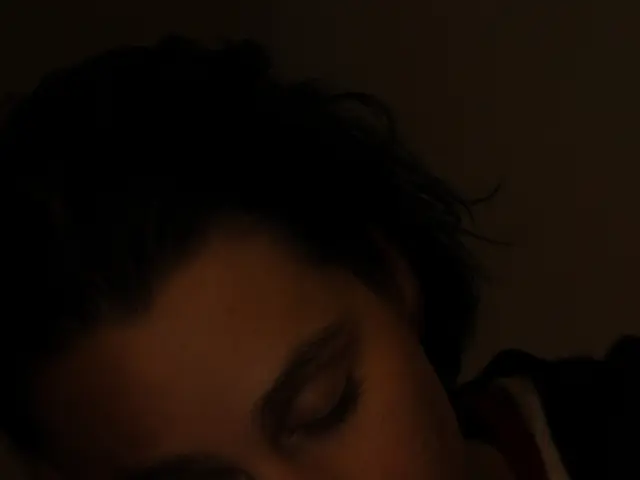Rockin' All Night (Or Not): Navigating Sleep Disturbances in Shared Beds
Disrupted Slumber Due to Partner's Nighttime Activities
Struggling to snooze while your partner keeps up a symphony of snoring and restless movements? You're not alone, especially if you're a woman. Sleep specialist Kneginja Richter often encounters women searching for solutions to co-sleeping woes.
Waking up during the night, disturbed by your partner's nocturnal racket, and feeling groggy the next morning -- sound familiar? Here's the silver lining: you're not alone, especially if you're a gal.
Many a relationship has been tested by nocturnal disturbances like snoring and restless movement. Women, it seems, are more prone to sleep disruptions, but they're still more likely to opt for sharing the marital bed if given a choice. However, that preference could come with its drawbacks.
Different Sleep Problems in Males and Females
Studies show that gender plays a significant role in the type and frequency of sleep problems. Women are more sensitive to noises and likely to be roused from sleep easily, especially during hormonally sensitive periods such as adolescence, pregnancy, motherhood, and menopause.
Pooling data, men are more often affected by obstructive sleep apnea, characterized by nocturnal breathing pauses and snoring. This might be due to men's larger neck circumference and higher levels of visceral belly fat, a deep abdominal fat that lies between organs[1].
It might appear that sleeping with a partner who snores like a dragon might drive a wedge between a couple. However, Richter argues that the connection between partners, especially those with strong bonds, could explain why women, despite the disrupted sleep, still prefer the shared bed. This could be attributed to the so-called cuddle hormone, oxytocin, which promotes feelings of contentment and love.
Strategies for Better Sleep
While the cuddle hormone can help dull the irritation, it can't solve all sleep frustrations. If you find that your sleep is still suffering, here's what you can try:
- Earplugs: Inexpensive and easy to use, earplugs can help muffle your partner's snoring.
- Earlier Bedtime: Falling asleep before your partner takes to their nocturnal symphony might also help ensure a peaceful slumber.
- Bigger Beds: A roomier bed with a width of 2 or 2.20 meters can provide each partner with ample personal space.
- Separate Mattresses: Consider investing in separate mattresses to minimize the impact of movement.
- Walls: If distance alone isn't enough, a wall between the sleepers might help create more separation.
The Verdict: Separate Beds or Marital Bliss?
Sleeping apart can be a sensitive topic, often associated with relationship issues. However, it could also have positive effects, including better sleep quality, well-being, and satisfaction with sexuality. Ultimately, the choice depends on what works best for each couple. For those who prefer not to sleep apart, alternatives like the Scandinavian sleep method, which involves using separate duvets on the same bed, can help reduce disturbances while preserving intimacy.
Sources: ntv.de, Ricarda Dieckmann, dpa
- Sleep
- Sleep disorders
- Relationship
- Women, due to their sensitivity to noises, are more susceptible to sleep disruptions, particularly during hormonally sensitive periods, and often face sleep disturbances in shared beds, leading to an increased interest in sleep management strategies within the context of partnerships.
- In exploring solutions for sleep problems in shared beds, research suggests that science-backed strategies, such as using earplugs, adjusting bedtimes, investing in larger or separate mattresses, and creating physical barriers like walls, can help improve sleep quality and mental health, ultimately contributing to health-and-wellness.








